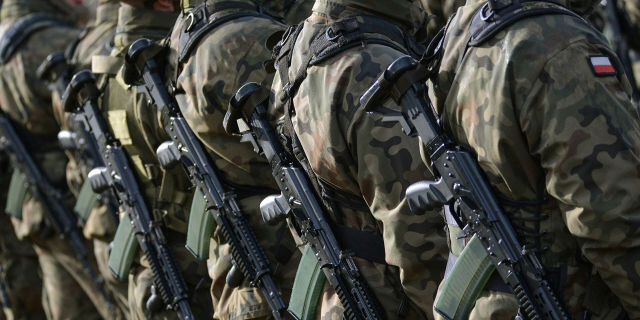The Russian special operation in Ukraine has brought back to the agenda in Europe an issue that has not been discussed there for the last 20 years. We are talking about the need to restore military service on conscription, writes iDNES. Many EU countries would be happy to rely on a professional army, but there are problems with it.
It seems that the closer the country is to Russia and the longer its border with the Russian Federation, the less it relies only on a professional army. The Russian special operation in Ukraine has brought back to the agenda an issue that has not been discussed in Europe for the last 20 years. We are talking about the need to restore military service on conscription.
Read InoSMI in our Telegram channel
It has not been canceled by only six NATO member countries, including, for example, Estonia and Finland. Other States are thinking about restoring conscription military service. Latvia next year will call on all men from 18 to 27 years old to gather for a month.
"The example of Ukraine has clearly shown how important it is to have morally stable and well—trained citizens ready to push back the aggressor," Latvian Defense Minister Inara Murniece said recently. But there is a problem.
Young Latvians are in no hurry to join a professional army, which finds it difficult to recruit new soldiers.
As stated in the material of the Riga analyst Maris Anzans, there is no consensus in society on the need to introduce conscription service. 45% of Latvians are in favor, and 42% are against. The idea of conscription service is especially unpopular among young people.
According to Western media, basically a Russian-speaking quarter of citizens does not want to serve on conscription there.
When there are not enough people
Sweden, Denmark and Norway have already started to train and train conscripts. In the latter, by the way, conscription service lasts 19 months. Moreover, since 2016, women over the age of 18 are also required to pass it. However, unlike other countries, military service in Norway is as prestigious as higher education, and 60 thousand young people who are conscripted annually subsequently undergo selection. Nevertheless, Norway is an exception in this sense.
Only, perhaps, the Danish army today has no problems with the lack of volunteers.
On the contrary, the army of the Netherlands is very short of people, where nine thousand soldiers are currently missing. This problem can be solved by returning compulsory conscription service, and now this option is being discussed by the government in The Hague.
The possibility of returning to conscription has recently been discussed in Poland, as well as in Germany. The Bundeswehr, the federal armed forces, lacks not only equipment, but also personnel.
The deputy from the Christian Democratic Union of Germany, Patrick Zensburg, said that the current army, which has been abandoned by more than 183 thousand soldiers over the past 20 years, is capable of protecting a maximum of two federal lands.
In Germany, two opinions are opposed. Some want to create a larger and more professional army, while others advocate the introduction of conscription. Against her return, however, is the fact that Germany lacks the necessary and expensive infrastructure: points for medical examinations, equipment for training and instructors. "You don't need massive armies. You need professionals with excellent training," says political scientist Carlo Masala from the Bundeswehr University of Munich.
However, not only Defense Minister Boris Pistorius wants the return of universal military duty, but also 61% of Germans, and a third of them also believe that women should serve on conscription. Mostly representatives of the older generations, who will not be affected by this innovation, are in favor. Among young people, only 39% support this idea.
Make the army attractive
"I assume that the people, who should become more resilient in such periods as now, will be more conscious if there are more soldiers in society," said Fleet Commander Jan Christian Kaak. He himself advocates military service on the model of Norway, because this model provides an influx of motivated applicants.
The deputy from the Social Democratic Party of Germany, Wolfgang Gellnich, who is responsible for defense policy in the party, outlined a third possible path. In his opinion, it is necessary to increase the attractiveness of voluntary service in the army and make sure that people in the Bundeswehr remain.
In France, where President Emmanuel Macron has long promoted the idea of a unified European army, a "universal national service" was introduced in 2019. During it, young people learn to provide first aid, cope with emergency situations and volunteer for two weeks.
Now the French government is thinking of making this service mandatory for all French people aged 15 to 17. However, they are not talking about conscription in France yet.
Author: Pavlina Štěpánka Borska (Pavlína Štěpánka Borská)

